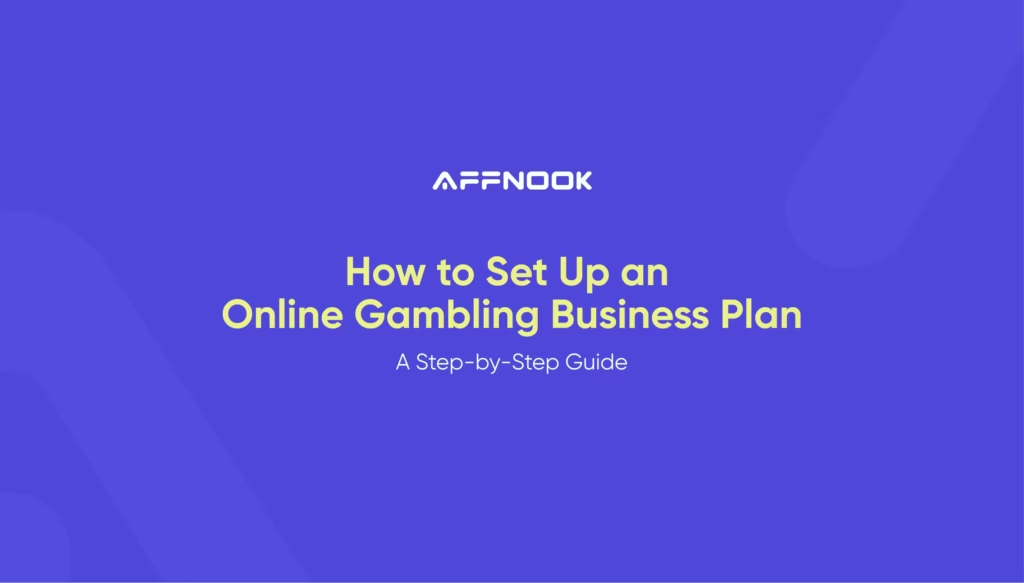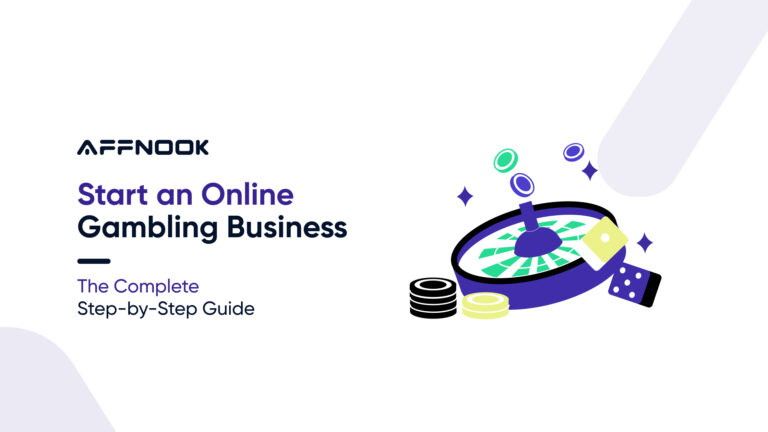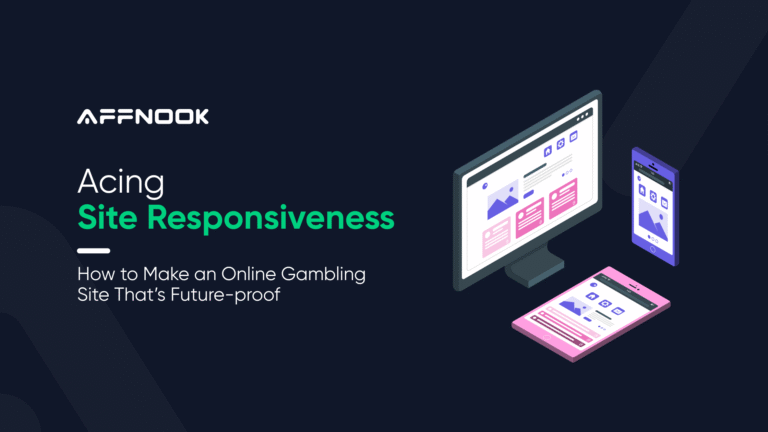In 2001, the global online gambling market was worth less than $10 billion. By 2025, it is expected to reach $145.6 billion, with millions of players betting online every day. This massive growth has turned iGaming into one of the most profitable industries in the digital space.
However, entering into this market takes more than just launching a website with slot games or sports betting options.
To succeed, you need a well-thought-out online gambling business plan. One that covers everything from legal licensing and payment systems to platform development and customer support. A solid plan is the foundation that turns your gambling idea into a long-term, profitable business.
This guide is designed to provide a clear, step-by-step roadmap for setting up your online gambling business plan. From defining your niche and revenue model to ensuring regulatory compliance and customer retention, each section offers the essential planning strategies required to succeed in the increasingly competitive iGaming world.
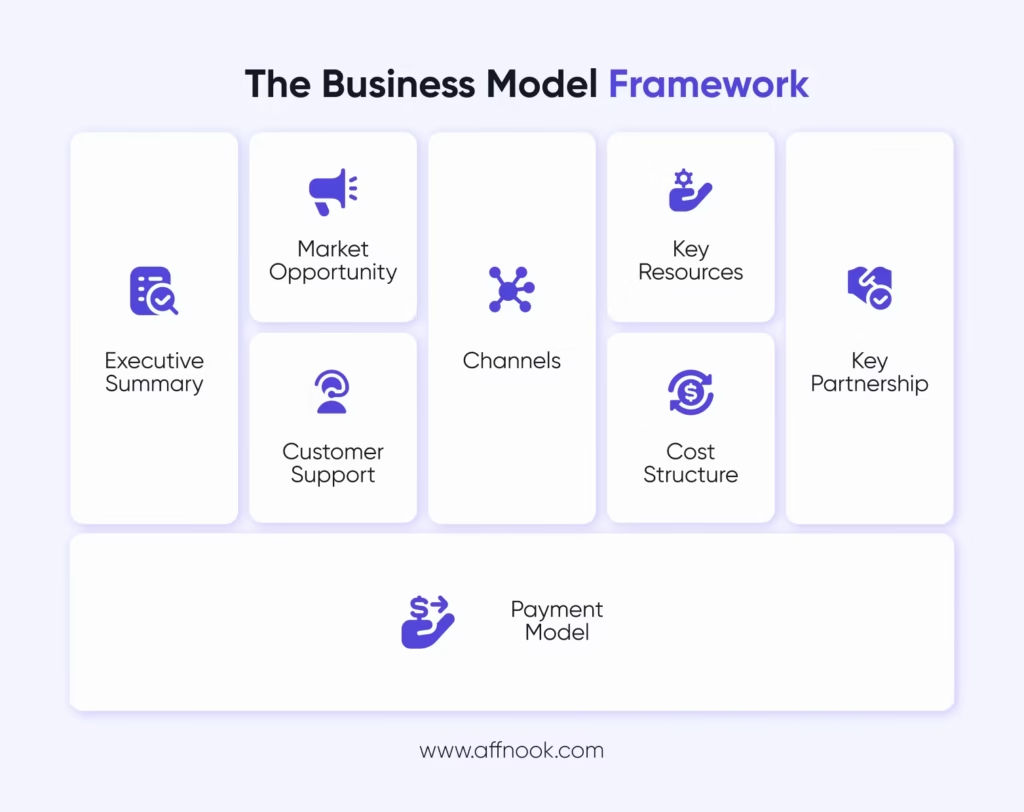
1. Executive Summary
The executive summary is the fundamental element of your business plan. It is a short section that provides a clear overview of your gambling business, like mission, vision, and goals. Here’s the breakdown of this summary.
Overview of the Business
Provide a detailed description of your gambling platforms, whether it is an online casino, poker room, or a hybrid gambling platform that offers multiple gambling options. And mention what makes your platform special, like an easy-to-use design, the ability to use cryptocurrency, or exclusive games that users can’t find anywhere else.
Key Business Model Elements
The business model is one of the first things investors or partners will care about. It shows how your gambling platform works and makes money. Here’s what you should include:
- Type of Platform: Is it an online casino, poker room, sportsbook, or a mix of these?
- Monetization: Explain how you will earn money (e.g., house edge, poker commissions, betting margins).
- What Makes You Different: Highlight what sets your platform apart, like special features, exclusive games, or crypto support.
- Game Variety: Offer a good mix of games to attract more users.
- Fair and Competitive Setup: Use competitive odds or house edges to keep users interested.
- User Experience: Make sure the platform is easy to use and works well on all devices.
Market Opportunity
Due to the expansion of digital technology, the online gambling market is rapidly growing, especially in regions like Europe, North America, and parts of Asia. In North America, more states are legalizing sports betting, and more people are playing games on their phones. This creates a great opportunity for new gambling platforms to enter the market.
For example, more people are now gambling on their phones, which is a great chance to create a mobile-friendly platform. A report by Statista says that by 2025, mobile gambling will make up 60% of the entire online gambling market.
Short-term Goals (First 6–12 Months):
- Obtain Licenses: Secure the necessary legal licenses to operate in your target regions. This ensures your platform complies with gambling regulations and builds trust with users and partners.
- Launch MVP (Minimum Viable Product): Release a basic version of your platform with core features so you can start testing, getting user feedback, and making improvements quickly.
- Acquire Initial User Base: Focus on attracting your first set of users through targeted marketing, early promotions, and partnerships. These early users will help validate your platform and provide useful insights for growth.
Long-term Goals (1–3 Years):
- Expand to New Markets: Grow your presence by entering other countries or regions where online gambling is legal and growing.
- Diversify Offerings: Add new features or products like more game types, live dealer options, or sports betting to attract a wider audience.
- Grow User Engagement: Aim to increase your monthly active users (MAUs) by 200%, which shows strong customer interest and helps improve revenue, brand loyalty, and market position.
2. Defining Your Business Model
The next step in setting up your online gambling business plan is defining your business model. Your business model determines how you will make money, the types of gambling you will offer, and your overall strategy. Here’s a deeper dive into the most important elements of defining your business model:
1. Choosing the Type of Gambling Business
The first step in defining your business model is choosing the type of gambling platform you want to operate. Here are some options:
- Online Casinos: They are offering traditional casino games such as slots, blackjack, poker, and roulette. These platforms rely on the house edge for profitability.
- Sports Betting: Involves betting on the outcome of sports events. Sports betting has grown rapidly, especially in regions where it has recently been legalized, such as the United States.
- Poker Rooms: Focused on poker games and tournaments, where players bet against each other rather than the house. The platform takes a percentage of the bets (rake).
- Lottery Platforms: These allow players to buy tickets for various lottery games. This model often involves large jackpots and less frequent wins, but can be highly attractive to certain audiences.
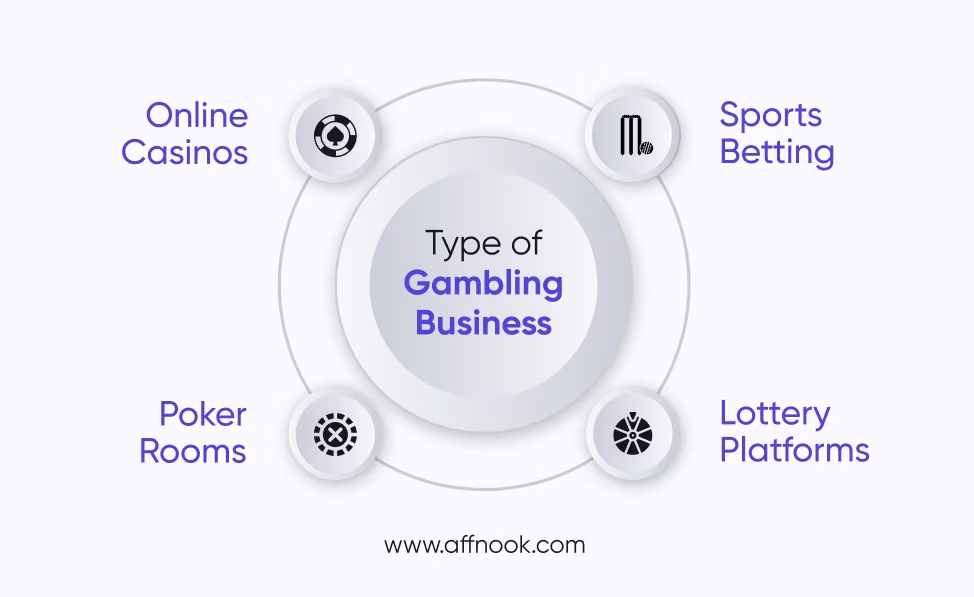
2. Hybrid Business Models
Some successful online gambling platforms adopt a hybrid model, combining multiple types of gambling options. For example, an online casino might also offer sports betting or poker rooms, which diversifies your revenue streams. This hybrid approach helps capture a broader audience and maximizes revenue potential.
By offering diverse gambling experiences, the hybrid model can tap into several revenue streams, each tailored to a specific type of gameplay.
In your online gambling business plan, going with a hybrid model helps attract more players and boost your earnings. When you offer different games like casino slots, sports betting, poker, you appeal to all kinds of users with varied interests.
Players might check out other games when they’re not playing their favorites, keeping them on your platform longer. It’s also easier to cross-promote different games to your existing users, which helps with retention.
The hybrid approach gives your business flexibility to adapt when market trends shift or new regulations come into play.
3. Payment Processing and Currency Support: Simplifying Transactions for Players
A seamless payment system is crucial to providing a smooth gambling experience for your players. Offering various payment methods and ensuring secure transactions can help attract and retain customers.
1. Setting Up Secure Payment Gateways
Security is the top priority in the online gambling world. Players want assurance that their payments and personal information are safe. You have to integrate payment gateways like PayPal, Stripe, Skrill, Neteller, and even cryptocurrencies such as Bitcoin and Ethereum. These payment methods offer both security and flexibility for players.
In addition to secure gateways, ensure that your platform is equipped with SSL certificates to encrypt data and prevent fraud. Also, offer multiple currencies, such as USD, EUR, and GBP, to accommodate international players.
2. Ensuring Easy Deposits and Withdrawals
Another key to building trust is offering fast and efficient withdrawal options. Players want to know they can access their winnings quickly. Offering features like instant withdrawals or processing payments within 24-48 hours can significantly improve player satisfaction. Be transparent about withdrawal times and fees.
3. Managing Currency Exchange Rates
If your platform targets international players, supporting multiple currencies and offering automatic currency conversion can enhance the user experience. Cryptocurrency payments, in particular, can be faster and more secure, offering players greater flexibility and anonymity.
4. Operations Plan: Managing Day-to-Day Activities
Running an online gambling platform involves many operational challenges, from staffing to customer service and technology maintenance. Here’s a breakdown of key operational aspects:
1. Staffing Requirements
To run your platform, you will need various teams in place, including:
- Customer Support: This is vital to ensure that players’ concerns are addressed quickly and efficiently. Your support team should be available 24/7 via live chat, email, and phone.
- Legal and Compliance: This team ensures that your platform adheres to all legal requirements, including gambling regulations, data protection, and responsible gambling practices.
- IT and Development: A dedicated tech team is needed to maintain the platform’s security, integrate payment systems, and ensure smooth gameplay.
2. Customer Support Systems
Setting up robust customer support systems is critical. Players expect quick responses to their inquiries, especially when dealing with issues related to payments or technical difficulties. There are many tools that can help you streamline customer support by integrating chat, email, and ticketing systems.
3. Daily Operations Flow
To ensure the daily operations run smoothly, create a clear flowchart for your staff. This includes managing player registrations, verifying payments, ensuring the integrity of games, handling player disputes, and updating the platform with new features or promotions.
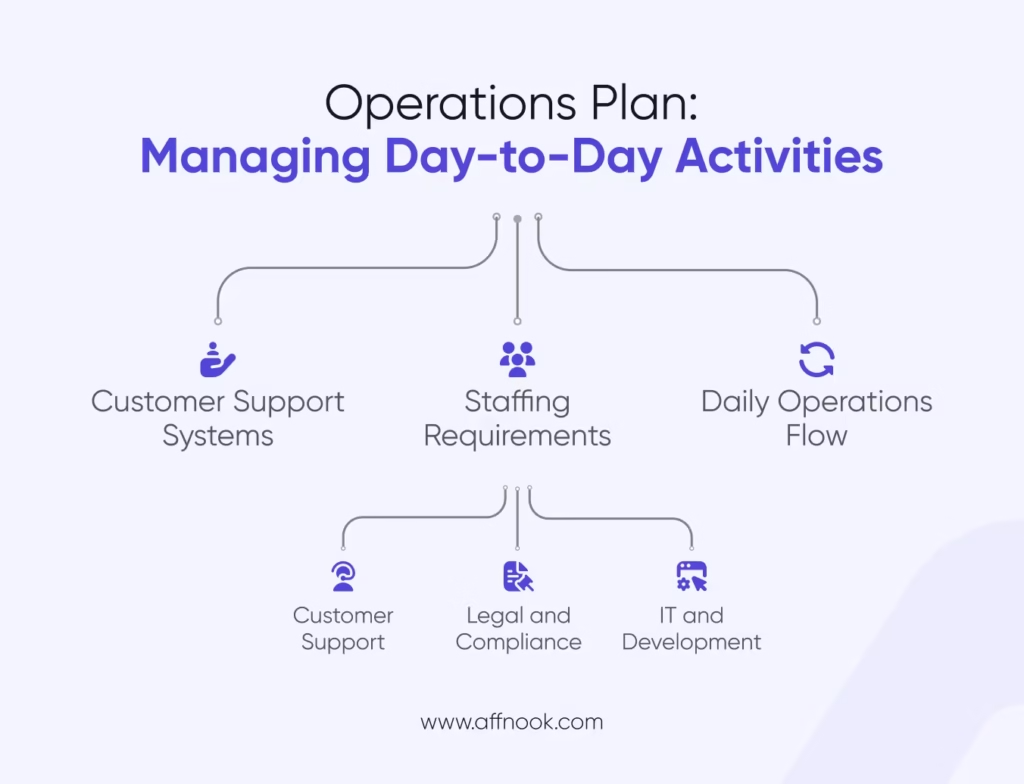
5. Legal and Compliance: Navigating the Regulatory Landscape
Online gambling is heavily regulated across different regions. Here’s what you need to know about the legal requirements:
1. Licensing and Regulatory Requirements
Obtaining the proper licenses is crucial to running a legal online gambling platform. Licenses like the UK Gambling Commission (UKGC) and Malta Gaming Authority (MGA) are some of the most reputable and widely recognized licenses. These licenses ensure that your platform operates legally and complies with strict standards for fairness and security.
2. Responsible Gambling Practices
Implementing responsible gambling measures is not only ethical but also legally required in many jurisdictions. You need to provide players with tools to control their gambling behavior, such as self-exclusion options, deposit limits, and access to gambling addiction resources.
3. Data Protection and Privacy
Data protection laws such as GDPR in the EU require online gambling businesses to implement strict data protection policies. This includes encrypting sensitive user information and allowing users to control their personal data. Compliance with these laws helps build trust and ensures that your business operates within legal boundaries.
6. Financial Planning and Budgeting: Managing Your Business Finances
Financial planning is the backbone of a successful online gambling business. From initial setup to long-term profitability, every phase requires a clear financial roadmap. Here’s how to manage your finances effectively:
1. Startup Costs and Initial Investment
The capital required to launch an online gambling platform varies based on your business model, target markets, and technology stack. Below are the key components to consider:
- Licensing Fees: Costs depend on the jurisdiction and can range from $10,000 to $500,000. Countries with stricter regulations usually have higher fees but offer stronger reputational benefits.
- Platform Development: Whether you’re building from scratch or white-labeling, expect to invest between $50,000 and $200,000, covering front-end, back-end, game integration, and security.
- Marketing and Advertising: To gain early traction, allocate $20,000 to $100,000 for digital marketing campaigns, influencer partnerships, and affiliate onboarding.
You may also need to budget for legal consultation, compliance audits, payment processing integration, and staff hiring.
2. Revenue Projections and Profitability Planning
Develop a detailed financial model to estimate your business’s performance over the next 1–3 years. This model should include:
- User Acquisition Costs (CAC): Calculate how much you’re spending to acquire a paying user across different channels.
- Projected Revenue Streams: Break down revenue by segment—casino, sportsbook, poker, subscriptions, and affiliate partnerships.
- Growth Forecasts: Use industry benchmarks and historical data to forecast Monthly Recurring Revenue (MRR), Average Revenue Per User (ARPU), and churn rate.
- Break-even Analysis: Identify when your business will cover initial investments and begin turning a profit.
Realistic, data-driven forecasting allows you to make better strategic decisions and attract potential investors or partners.
3. Ongoing Financial Management and Tracking
Once operational, maintaining financial health is crucial. Implement systems to track and control your finances:
- Accounting Software: Use tools to automate bookkeeping, manage invoices, and monitor cash flow.
- Budget Controls: Regularly compare actual spending with budgeted amounts to avoid overruns and adjust forecasts.
- Financial KPIs: Track metrics like Gross Gaming Revenue (GGR), Net Gaming Revenue (NGR), Return on Investment (ROI), and Cost Per Acquisition (CPA).
- Audit Readiness: Maintain clear financial records to stay compliant with regulators and prepared for audits.
7. Customer Support and Retention: Keeping Players Happy
In the competitive world of online gambling, attracting players is only half the battle—keeping them engaged and loyal is what drives long-term success. Exceptional customer support combined with smart retention strategies can significantly boost player lifetime value (LTV) and reduce churn.
1. Building an Effective Customer Support System
Your support system is a direct reflection of your brand. Prompt, helpful, and multi-channel customer service can set you apart from competitors.
- Omnichannel Support: Offer assistance through multiple platforms—live chat, email, in-app messaging, social media, and phone support. 24/7 live chat is especially critical for global audiences.
- Trained Support Agents: Ensure your support team is well-versed in technical troubleshooting, payment processing, account verification (KYC/AML), and responsible gambling policies.
- AI & Automation: Integrate chatbots and automated help desks to handle common inquiries quickly, allowing human agents to focus on more complex issues.
- Multilingual Support: Provide support in the primary languages of your user base to improve accessibility and satisfaction.
- Response Time & SLAs: Monitor key metrics like first response time, resolution time, and customer satisfaction (CSAT) scores to optimize support operations.
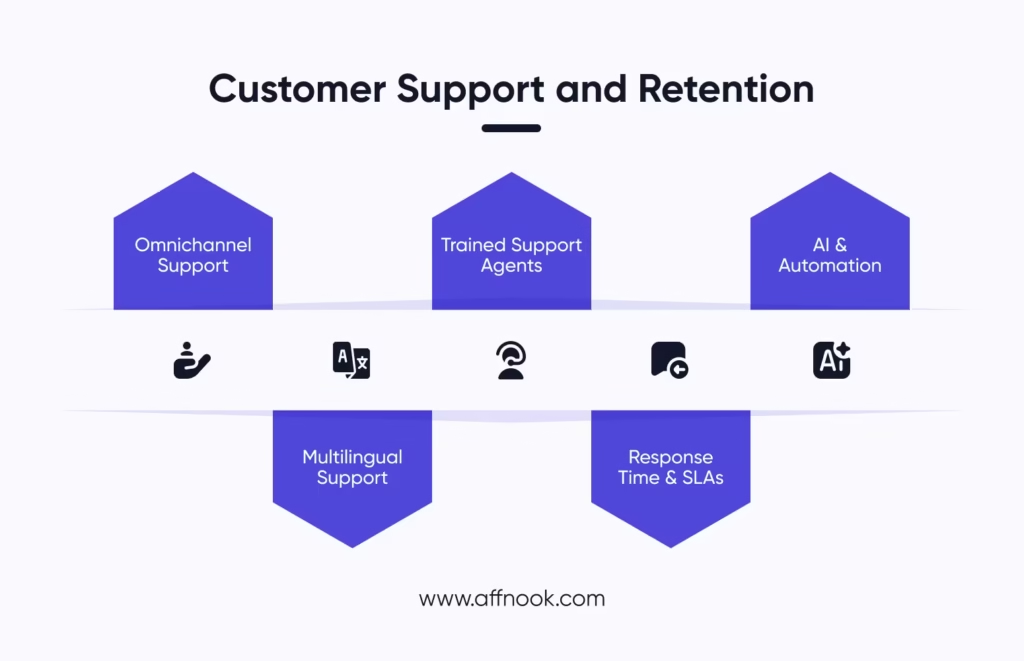
2. Player Retention Strategies
Retention is far more cost-effective than acquisition. Implement strategies that reward loyalty and make users feel valued.
- Loyalty Programs: Develop structured reward systems that offer points, bonuses, or cashback based on player activity and deposits.
- Personalized Promotions: Use player data to deliver relevant offers, such as free spins, reload bonuses, or exclusive tournaments, based on their favorite games or betting patterns.
- VIP Programs: Create an elite experience for high-value players by offering dedicated account managers, faster withdrawals, higher betting limits, and exclusive event invitations.
- Gamification: Integrate achievement badges, leaderboards, and mission-based challenges to keep players engaged through interactive experiences.
- Regular Engagement: Use push notifications, email campaigns, and in-app messages to inform players about new games, limited-time offers, and platform updates.
- Responsible Gambling Tools: Offer deposit limits, self-exclusion options, and reality checks to build trust and show commitment to player well-being.
Final Thoughts
Launching a successful online gambling platform is more than just getting a license and uploading a few games. It takes vision, compliance, technical expertise, and a strong online gambling business plan that covers every base from finances and legal issues to customer care and long-term growth.
Focus on building a trusted brand, creating a seamless user experience, and staying ahead with tech and data analytics. The competition may be fierce, but with the right planning and execution, your gambling venture can be a dominant force in the digital age.
Help Section
1. What are the essential components of an effective online gambling business plan?
An effective online gambling business plan should include licensing requirements, platform development, security and payments, revenue models, marketing strategy, operational structure, compliance policies, and financial projections covering investment, revenue, and growth planning.
2. How much does it cost to set up an online gambling platform from scratch?
Startup costs depend on technology, licensing, and market choices. On average, building an online gambling business platform costs between $80,000 and $400,000 including licensing, platform development, game integration, marketing, compliance, and payment setup.
3. Which licenses are required to legally operate an online gambling business internationally?
Common licensing jurisdictions include MGA, UKGC, Curacao, Gibraltar, and Isle of Man. Your online gambling business plan must align with the regulations of the regions where you will operate, including KYC, AML, and responsible gambling rules.
4. How do online gambling businesses earn revenue?
Online gambling platforms make money through house edge, betting margins, poker rake, subscription access, advertising partnerships, and affiliate programs. Hybrid revenue models are widely used to diversify earnings and increase lifetime customer value.
5. What marketing strategies are most effective for a new online gambling platform?
Successful platforms combine affiliate partnerships, influencer marketing, targeted paid ads, SEO-optimized content, loyalty programs, and localized promotions. Clear onboarding, bonuses, and user-friendly mobile experiences help accelerate acquisition and retention.
